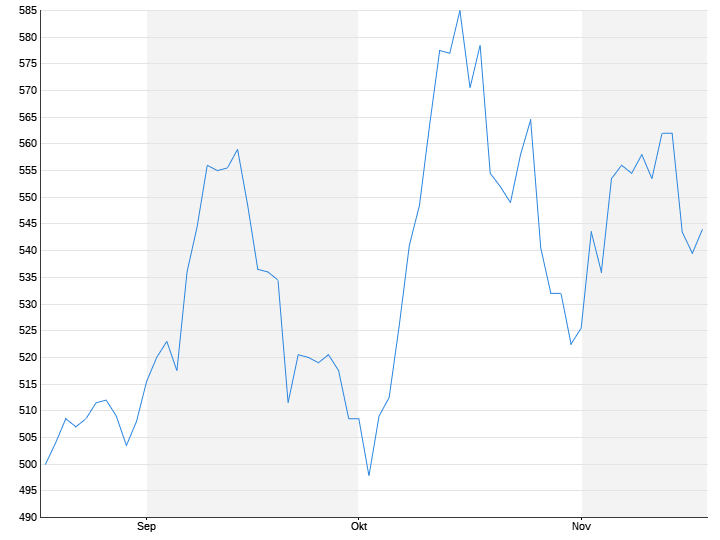1000 jobs from 2027
Eli Lilly is building a plant for weight loss injections in Alzey
November 17, 2023, 5:19 p.m
Listen to article
This audio version was artificially generated. More info | Send feedback
The most valuable listed healthcare group in Rhineland-Palatinate wants to build a new factory without any tax aid. In a few years, the billion-dollar market for weight loss supplements will be served from there.
The US pharmaceutical giant Eli Lilly wants to invest billions in a new plant in Alzey, Rhineland-Palatinate. The high-tech factory is scheduled to go into operation in 2027 and produce injectable medications to meet the growing demand for new diabetes drugs such as Mounjaro, as the company explained in Berlin. With the necessary approval in the EU, Mounjaro should then also be used here as a weight loss injection against obesity. Up to 1,000 jobs for highly qualified specialists are to be created permanently, and 1,900 jobs will be created during construction from 2024.
According to the information, the investment amounts to around 2.3 billion euros. In contrast to other large projects by chip manufacturers in East Germany, for example, Lilly operates without public subsidies and therefore without German tax money, said Economics Minister Robert Habeck. “This investment encourages the federal government in its efforts to make Germany more attractive as a pharmaceutical location again,” emphasized Federal Health Minister Karl Lauterbach.
The US company, which has been present in Germany since 1960, already employs around 1,000 people in Germany, primarily in Bad Homburg, Hesse. According to the company, the new factory in Alzey will be the sixth production location in Europe and will work closely with an existing factory near Strasbourg in France. Lilly’s corporate headquarters is in Indianapolis, Indiana. With a market value of around $560 billion, Lilly is the most valuable listed healthcare company in the world. According to the group, sales in Germany in 2022 were 905 million euros.
It was said that the investment decision for Germany and Alzey was made due to the infrastructure and very well-trained specialists. Lilly also plans to invest up to $100 million in the start-up ecosystem of Germany’s life science and biotech industry.
No decision on whether the costs will be covered by health insurance companies
Lilly’s hopeful Mounjaro is approved as a diabetes treatment in the USA and Europe. The pharmaceutical company has also received approval for the product as a weight-loss injection from the US Food and Drug Administration in the USA. This is sold under the name Zepbound and is a competing product to Wegovy from the Danish company Novo Nordisk. In the EU, the expanded use of Mounjaro against morbid overweight (obesity) was recommended by the regulator for approval by the EU Commission. But this is still pending.
The market is extremely lucrative. A real hype has arisen around the extremely effective weight loss injections, which were originally developed to combat high blood sugar. The Danish pharmaceutical company Novo Nordisk has had great success with its drugs Ozempic and Wegovy, which contain the active ingredient semaglutide. Ozempic is prescribed for people with diabetes, Wegovy is specifically approved as a weight loss medication and is sold at a significantly higher price. Thanks to the drugs, Novo Nordisk became Europe’s most valuable company at the beginning of September. When asked whether there were considerations that statutory health insurance companies in Germany could reimburse weight-loss medications in the future, unlike before, Lauterbach said: “We haven’t looked into that at the moment.”
The Association of Research-Based Drug Manufacturers explained that every euro of pharmaceutical production creates another two euros of added value in other areas. “Every pharmaceutical job creates more than twice as many additional upstream and downstream jobs,” said association President Han Steutel. Meanwhile, with the billion-dollar investment, Rhineland-Palatinate is strengthening its importance as a biotech and pharmaceutical cluster in Germany with companies such as Biontech in Mainz or Boehringer in Ingelheim.
Chancellor Olaf Scholz has repeatedly emphasized that the federal government wants to improve the opportunities for pharmaceutical companies to use anonymized patient data. A new pharmaceutical research law is planned for this purpose. A pharmaceutical summit with Chancellor Scholz and representatives from the industry is also scheduled to take place this year.
